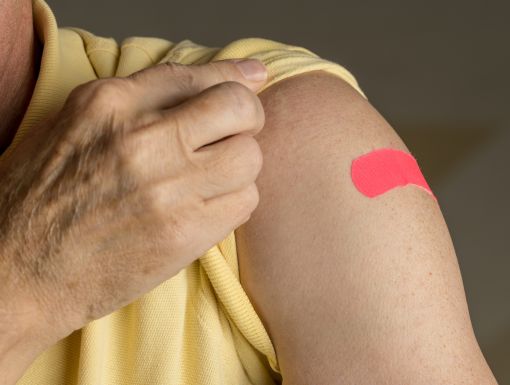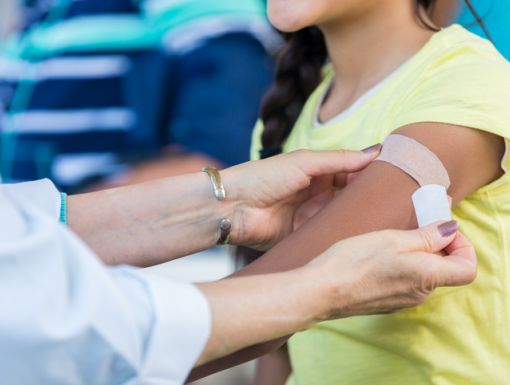
What Should You Know About RSV and How Can You Protect Your Family?
Respiratory syncytial virus, or RSV, is a common virus that affects the lungs and respiratory tract. While often thought of as a childhood illness, RSV can make people of all ages sick. Most children are infected by age 2, but adults are also at risk.
RSV is highly contagious and spreads easily in households, schools and childcare settings. It passes through droplets when someone coughs or sneezes and can survive for hours on surfaces such as toys, doorknobs and countertops. Because of this, RSV is a major concern for families during the colder months when people spend more time indoors.
How does RSV affect babies?
RSV can be serious for babies, especially newborns. It is the most common reason babies are hospitalized in the United States.
Early RSV symptoms in babies may look like a common cold, such as a runny nose, cough or fever. However, RSV can quickly become severe. In some cases, it leads to bronchiolitis (inflammation of the small airways in the lungs) or pneumonia, which can cause breathing difficulties, dehydration and low oxygen levels. Babies born prematurely or those with underlying conditions such as heart disease or weakened immune systems face the highest risk.
Parents should call a doctor immediately if their baby shows signs of:
- Trouble breathing
- Wheezing
- Refusing to feed
- Unusual fatigue
Which vaccines and medicines protect babies from RSV?
In 2023, the U.S. Food and Drug Administration (FDA) approved Abrysvo, an RSV vaccine for pregnant women between 32 and 36 weeks of pregnancy. The vaccine helps protect babies after birth by passing antibodies through the placenta. It is typically given between September and January, when RSV activity is highest.
That same year, a new medicine called Beyfortus (nirsevimab) was approved for infants. This is not a vaccine but a protective shot that provides passive immunity, meaning it gives babies ready-made antibodies. Doctors recommend it for:
- All babies under 8 months old during RSV season (usually October through March)
- Some babies ages 8 to 19 months who are at higher risk of severe illness
In 2025, another medicine called Enflonsia (clesrovimab) was approved for babies under 8 months. Both Beyfortus and Enflonsia provide strong, fast protection that lasts at least five months.
Early studies from the 2024–2025 RSV season show that Abrysvo and Beyfortus significantly reduced RSV-related emergency room visits and hospitalizations for infants, marking an important step forward in protecting newborns.
How can adults protect themselves from RSV?
A common misconception is that RSV only causes mild symptoms in adults. While many experience RSV like a cold, with a runny nose, sore throat, cough or headache, the virus can be far more dangerous for older adults and those with chronic health conditions.
The Centers for Disease Control and Prevention (CDC) recommends that adults ages 75 and older receive the RSV vaccine. Adults ages 50 and older, as well as those with lung disease, heart disease or diabetes, are at greater risk and should also receive the vaccine. For these groups, RSV can lead to pneumonia, bronchiolitis or worsening of conditions such as asthma, chronic obstructive pulmonary disease (COPD) or congestive heart failure.
The CDC says that each year an estimated 110,000 to 180,000 older adults in the United States are hospitalized because of RSV. These numbers highlight why prevention and vaccination are critical for seniors and people with compromised health.
Which RSV vaccines are available for adults?
In 2023, the FDA approved two RSV vaccines for adults: Arexvy and Abrysvo. These vaccines trigger an immune response that protects against future infections, with just one dose providing protection for at least two RSV seasons.
When is RSV season and how can you prevent yourself from contracting it?
RSV season typically begins in the fall and peaks in winter, though timing and severity can vary each year. The COVID-19 pandemic disrupted RSV patterns, leading to unusually early peaks in recent seasons.
Because RSV spreads so easily, prevention is key. Steps to reduce risk include:
- Washing your hands often with soap and water for at least 20 seconds
- Avoiding close contact with sick individuals
- Covering coughs and sneezes with a tissue or your elbow
- Disinfecting high-touch surfaces such as toys, phones and doorknobs
- Keeping infants away from crowded areas during RSV season
Families with newborns or high-risk children may also want to limit visitors and encourage anyone feeling unwell to postpone visits until they are fully healthy.
With vaccines and preventive medicines now available for both adults and babies, families have more tools than ever to protect their most vulnerable loved ones.
Where can I learn more about RSV and get support?
If you have questions about RSV vaccines, prevention or treatment options, the Ochsner Pharmacy & Wellness team is here to help. Our pharmacists can provide guidance, answer questions about prescriptions and connect you with trusted resources to keep your family healthy. Find an Ochsner Pharmacy & Wellness location near you.
Your primary care doctor is also a valuable source of information about RSV symptoms, prevention and care. Learn more about Ochsner’s primary care services and schedule an appointment today.



